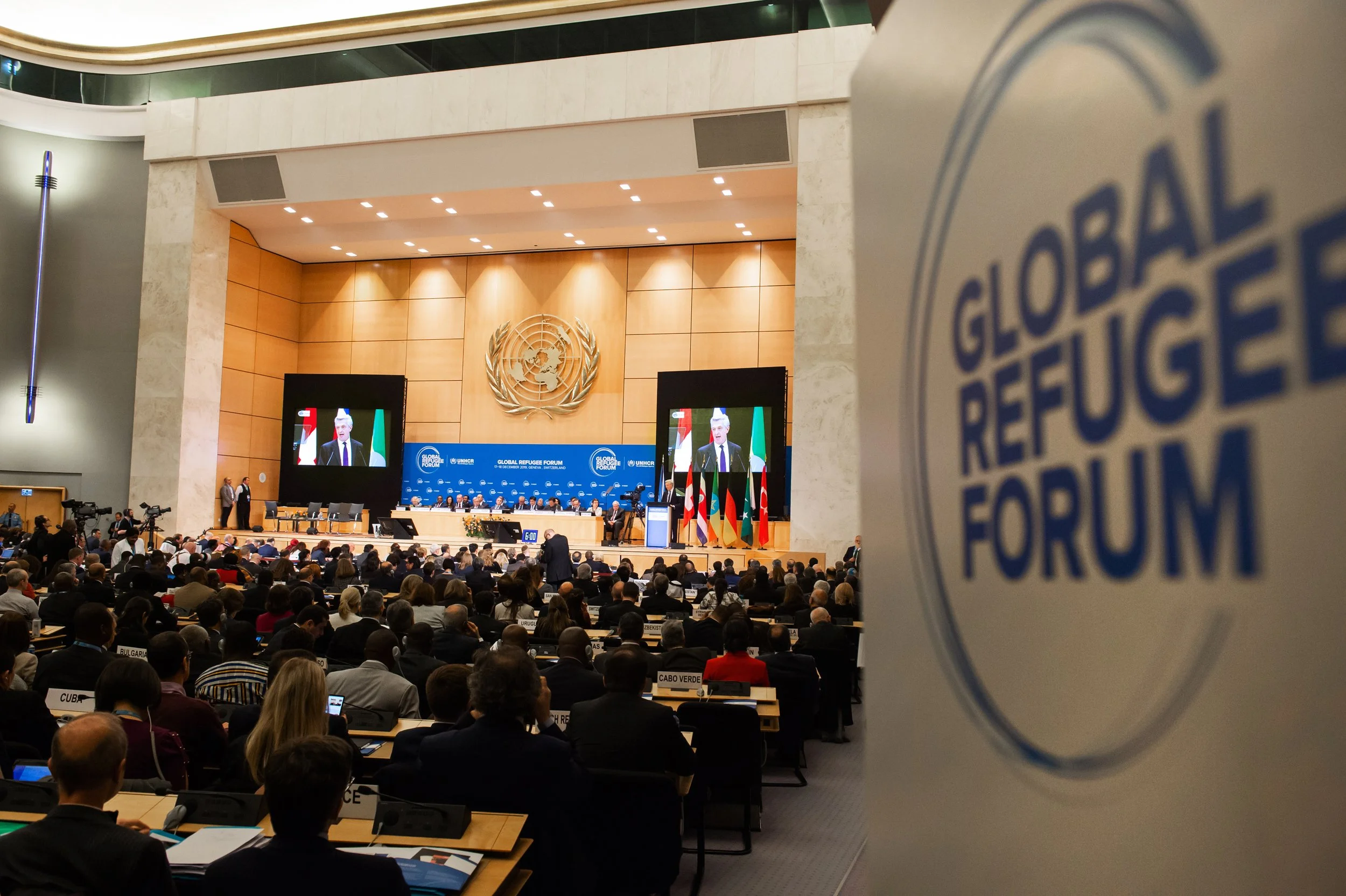by Alli Gillespie, MSW, MPH
At the end of 2019, over 3,000 representatives from UNHCR member states, international organizations, private institutions, NGOs, and other entities gathered at the inaugural Global Refugee Forum (GRF). Many of these stakeholders committed pledges to take actionable steps to enhance refugee self-reliance and to improve the lives of displaced peoples and host communities around the world. These pledges spanned several areas of focus, including complementary pathways, education, energy, infrastructure, and protection.
As a key objective in the Global Compact on Refugees, the concept of refugee self-reliance has been elevated at this catalytic moment in time. Seeking to capture the momentum arising from the 2019 GRF, which has expanded to the broader ecosystem as entities prepare for the next round of pledging at the 2023 GRF, members of the Refugee Self-Reliance Initiative assessed the status of pledges committed to improving one or more domains of refugee self-reliance.
In doing so, several characteristics of what makes a quality self-reliance pledge have emerged. We share some of these characteristics below to inspire pledging entities to strengthen their commitments, increase their potential impact, and improve accountability in supporting those who have been forced to flee their homes.
Characteristic 1: Pledge specifies the region and type of context it aims to support.
Of the pledges we reviewed, nearly 10% did not specify a target region, and another 10% indicated a vague, global focus. More concerning were the nearly 9 in 10 pledges that lacked specification around the type of context to which it committed its support.
In order to be considered SMART (specific, measurable, attainable, realistic, and timebound), impact indicators must be adapted for a given context and consideration of its strengths and constraints. Such indicators also make it easier to track the progress of the pledge.
Pledges should specify the region and context of research, policy, and/or programming to improve implementation and thus increase the potential of the pledge’s fulfillment.
Characteristic 2: Pledge clearly considers and addresses the specific needs of its population of focus and tailors support accordingly.
While many pledges we reviewed included a clear goal of support for refugees and/or host communities, many lacked clarity regarding additional attributes of the population(s) it committed to support. In other words, the needs of target groups within refugee and/or host communities were not always clearly defined.
Ensuring that refugee sub-populations with intersecting identity dimensions (based on their age, ethnic group, disability status, gender, sexual orientation, documentation or legal status, education level, etc.) do not face further marginalization in self-reliance efforts requires careful intention.
Pledges should remain transparent about their intended interventions’ inclusion of and accessibility for different groups and clearly define contextual and cultural considerations.
Characteristic 3: Pledge is a joint action, bringing together cross-sector entities as partners and collaborators.
Despite the GCR calling for joint action to support refugees, almost three-quarters of pledges were made by individual entities as opposed to joint partnerships or collaborations. Among the pledges we reviewed, the most prominent collaborators of joint pledging were states and international non-governmental organizations.
While this is a promising start, there is abundant opportunity for increased cross-sector collaboration with and among the private sector, universities and academics, civil society organizations, and religious institutions.
Pledging entities across sectors and regions should actively seek out partnerships when planning commitments to ensure more holistic action and collaborative resource use.
Characteristic 4: Pledge includes clear accountability mechanisms, such as providing routine updates and linking to existing tracking systems.
High-quality pledges should be trackable and contain milestones at which progress can be reported. For example, many of the 2019 pledges that had reported updates to UNHCR indicated meaningful advancements and even pledge fulfillment. Meanwhile, many entities had yet to report updates on the status of their commitments to UNHCR at the time of our review.
Routinely updating the status of commitments toward self-reliance action makes it easier to track progress over time, improving knowledge of how many pledges have been fulfilled and highlighting which pledges may require more support or partnership.
Pledges should consider implementing SMART goals (specific, measurable, attainable, realistic and timebound and linked to one or more impact indicators) to strengthen accountability. In addition, pledges must remain accountable to the affected populations, routinely sharing progress with local communities and soliciting their feedback on ongoing efforts.
In conclusion
We hope that when thinking about how to move forward with current pledges or designing new pledges at the upcoming Global Refugee Forum, entities will consider these four characteristics to improve pledge quality, actionability, and accountability.
For further guidance on pledges related to economic inclusion and social protection topics, we suggest consulting the Technical Guidance Notes (categorized by Data & Evidence, Programmes, and Law & Policy) on RSRI’s Mega Pledge development page. These Technical Guidance Notes offer examples and templates that pledges can use when drafting commitments, helpful definitions, and other resources. Our team looks forward to working together to strengthen self-reliance efforts around the globe and to prevent further forced displacement.
For further information, please contact info@refugeeselfreliance.org.
Author:
Alli Gillespie, MSW, MPH
Research Fellow, Refugee Self-Reliance Initiative
Senior Research Manager, Brown School at Washington University in Saint Louis
This article draws on GRF pledge stocktaking research conducted jointly with RSRI Policy Fellow, Ngenarr Yassin Jeng.



